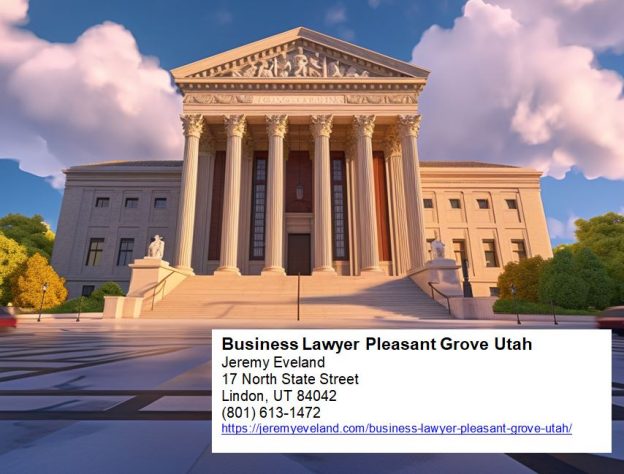The Role Of Business Law In Protecting Minority Shareholder Rights
Business law plays a crucial role in safeguarding the rights of minority shareholders within a company. As a minority shareholder, you hold a smaller percentage of shares compared to the majority shareholders. This can put you at a disadvantage when it comes to decision-making and protecting your interests. However, legal frameworks are in place to ensure that your rights as a minority shareholder are protected and that you have equal opportunities to participate in corporate decisions.
One of the key challenges faced by minority shareholders is access to information. Without proper access to relevant information about the company's operations and financials, it becomes difficult for you to make informed decisions or effectively monitor the actions of the majority shareholders. Business law recognizes this need and mandates that companies provide adequate disclosure of information to all shareholders, ensuring transparency and equal access for everyone involved. This helps level the playing field and empowers minority shareholders like yourself with the knowledge needed to protect your interests.
Key Takeaways
- Business law ensures that minority shareholders have the right to receive dividends and promotes fairness in dividend distribution based on ownership stake.
- Business law guarantees equal opportunities and voting rights for all shareholders, allowing minority shareholders to participate in important decisions and have a say in the company's direction.
- Transparency requirements, disclosure of information, and independent boards contribute to equal treatment and accountability, safeguarding minority shareholder interests.
- Legal remedies, such as class action lawsuits and holding directors accountable for unfair actions, enforce accountability mechanisms and protect minority shareholders from abuses of power and unfair treatment.
Challenges Faced by Minority Shareholders
Being a minority shareholder can be an uphill battle, with their rights often trampled on and their voices drowned out in the corporate world. Minority shareholder rights are crucial for protecting the interests of those who own a small portion of a company's shares. However, these shareholders face numerous challenges that hinder their ability to exercise their rights effectively.
One of the major challenges faced by minority shareholders is the lack of control over decision-making processes. In many cases, majority shareholders hold significant power and can make decisions without considering the interests or opinions of minority shareholders. This leaves them at a disadvantage when it comes to influencing important strategic choices or electing board members who will represent their interests. Without adequate protection under business law, minority shareholders may find themselves marginalized within the company they have invested in.
Another challenge faced by minority shareholders is limited access to information. Companies are not always transparent about their financials and decision-making processes, making it difficult for minority shareholders to assess the health and performance of the company accurately. Lack of access to relevant information can prevent them from making informed decisions about buying or selling shares and exercising other rights they are entitled to as investors.
Furthermore, minority shareholders often struggle with exit options if they become dissatisfied with how a company is being managed. Unlike majority shareholders who have more leverage in negotiating buyouts or selling their shares, minority shareholders may find it challenging to sell their stake at fair prices due to limited market liquidity or restrictions imposed by majority owners.
Being a minority shareholder comes with its fair share of challenges including limited control over decision-making processes, restricted access to information, and difficulties in exiting investments. These obstacles highlight the importance of legal frameworks that protect minority shareholder rights. By establishing clear guidelines on governance practices, disclosure requirements, and dispute resolution mechanisms, business laws provide much-needed safeguards for these individuals against potential abuses by majority owners.
Importance of Legal Frameworks
By understanding the significance of legal frameworks, you can appreciate the stark contrast between a system that safeguards minority shareholders and one that neglects their interests. The role of business law in protecting minority shareholder rights cannot be overstated. Legal frameworks establish the rules and regulations that govern corporate behavior, ensuring fairness and equality for all shareholders, regardless of their ownership stake. Without these protections, minority shareholders would be vulnerable to abuse and exploitation by majority shareholders or controlling parties.
To fully grasp the importance of legal frameworks in protecting minority shareholder rights, it is essential to consider several key factors:
-
Clear Rights and Responsibilities: Legal frameworks provide minority shareholders with clear rights and responsibilities within a corporation. These include the right to vote on important matters, access financial information about the company, receive dividends, and hold directors accountable for their actions. By outlining these rights in business law, minority shareholders are given a level playing field where they can actively participate in decision-making processes.
-
Enhanced Transparency: A strong legal framework promotes transparency within corporations by requiring companies to disclose relevant information to all shareholders. This ensures that minority shareholders have access to crucial information about the company's financial performance, potential risks, and major transactions. Access to this information allows them to make informed decisions about their investments and take appropriate action if they believe their rights are being infringed upon.
-
Remedies for Violations: Legal frameworks provide avenues for recourse when minority shareholder rights are violated. This includes mechanisms such as lawsuits or arbitration procedures through which aggrieved parties can seek redress for any harm suffered due to unfair treatment or disregard for their interests. Having these remedies available helps deter misconduct by majority shareholders or controlling parties who might otherwise act with impunity.
-
Strong Corporate Governance: Business laws play a vital role in promoting good corporate governance practices which benefit both majority and minority shareholders alike. They establish standards of conduct for directors and executives, encouraging ethical behavior, accountability, and responsible decision-making. By upholding these standards, legal frameworks create an environment where minority shareholders can trust that their rights will be protected, and the company will be managed in their best interests.
By recognizing the significance of legal frameworks in protecting minority shareholder rights, it becomes evident how crucial they are to maintaining a fair and equitable corporate landscape. However, access to information is another essential aspect that contributes to safeguarding the interests of minority shareholders.
Access to Information
To truly understand the importance of access to information, imagine yourself as a minority shareholder with the ability to visualize all crucial company details and make informed investment decisions. As a minority shareholder, your rights are protected by business law, which recognizes the significance of access to information in safeguarding minority shareholder rights. Access to information is vital for minority shareholders because it allows them to assess the financial health and performance of the company they have invested in.
Access to information empowers minority shareholders by providing them with the necessary data to evaluate their investment choices objectively. By having access to information such as financial reports, board meeting minutes, and key company decisions, minority shareholders can gain insights into how well their investments are performing. This knowledge allows them to actively participate in corporate governance processes and voice their concerns if necessary.
Furthermore, access to information plays a crucial role in ensuring transparency within companies and preventing any potential misconduct or fraud that may harm minority shareholders' interests. When minority shareholders have unrestricted access to relevant data about the company's operations, they can identify any irregularities or unethical practices that could negatively impact their investments. This transparency ultimately fosters trust between companies and their investors.
Access to information is an essential aspect of protecting minority shareholder rights under business law. It enables these shareholders to make informed decisions about their investments by providing them with a comprehensive understanding of a company's financial health and performance. Additionally, it promotes transparency within companies and prevents potential misconduct or fraud that may harm minority shareholders' interests. With this understanding of the role played by access to information, let us now delve into another crucial aspect: the right for minority shareholders to receive dividends without facing any obstacles or discrimination.
Right to Receive Dividends
Imagine yourself as a minority shareholder, entitled to receive dividends without any barriers or discrimination. As a minority shareholder, you have the right to receive your fair share of profits in the form of dividends. This right is protected by business law, which ensures that minority shareholders are not disadvantaged compared to majority shareholders when it comes to receiving dividends. Business law recognizes the importance of providing equal opportunities for all shareholders to benefit from their investment in a company.
The right to receive dividends is crucial for minority shareholders as it allows them to reap the rewards of their investment. Dividends are typically distributed on a pro-rata basis, meaning that each shareholder receives a dividend proportionate to their ownership stake in the company. This principle ensures that minority shareholders are not excluded from receiving their fair share of profits. By guaranteeing this right, business law promotes fairness and transparency within corporations.
To better understand how this works, let's take a look at a hypothetical scenario involving three shareholders: Alice, Bob, and Carol. They each own 30%, 40%, and 30% of shares respectively in XYZ Company. According to the company's financial statements, it has declared $100,000 in profits available for distribution as dividends. The table below illustrates how these profits would be divided among the three shareholders:
| Shareholder | Ownership Stake | Dividend Allocation |
|---|---|---|
| Alice | 30% | $30,000 |
| Bob | 40% | $40,000 |
| Carol | 30% | $30,000 |
As you can see from this example, business law protects minority shareholder rights by ensuring that they receive an equitable portion of dividends based on their ownership stake in the company.
Business law plays a vital role in protecting minority shareholder rights regarding the receipt of dividends. It guarantees that all shareholders have an equal opportunity to benefit from their investment in a company. By upholding this principle, business law promotes fairness and transparency within corporations. In the subsequent section about 'participation in corporate decisions,' we will explore how business law further safeguards minority shareholder rights in this aspect.
Participation in Corporate Decisions
Get ready to actively participate in important corporate decisions that affect the future of the company, as statistics show that companies with diverse and inclusive decision-making boards have been found to outperform their peers by 15% in terms of return on equity. As a minority shareholder, your participation in corporate decisions is protected by business law, ensuring that your rights are not overshadowed by majority rule. Here are four key ways in which you can exercise your participation rights:
-
Voting Rights: As a minority shareholder, you have the right to vote on matters that require shareholder approval. This includes electing directors, approving mergers or acquisitions, and making significant changes to the company's articles of incorporation or bylaws. Your vote carries equal weight as any other shareholder, regardless of the number of shares you own.
-
Proxy Voting: If you are unable to attend a shareholders' meeting in person, business law allows you to appoint someone else as your proxy to vote on your behalf. This ensures that even if you cannot physically be present at meetings, your voice can still be heard and counted.
-
Shareholder Meetings: Business law mandates that companies hold regular shareholder meetings where important decisions are discussed and voted upon. These meetings provide an opportunity for minority shareholders like yourself to actively participate and express your views on matters affecting the company's future.
-
Access to Information: To make informed decisions during corporate discussions, business law grants minority shareholders access to relevant information about the company's operations and financials. This transparency enables you to analyze proposals thoroughly and contribute meaningfully during decision-making processes.
By actively participating in corporate decisions through voting rights, proxy voting, attending shareholder meetings, and accessing relevant information about the company's affairs, you can ensure that your voice is heard and considered alongside other shareholders. This level playing field provided by business law protects minority shareholder rights while promoting diversity and inclusivity within decision-making processes.
Transitioning into the subsequent section about 'ensuring corporate transparency,' it is crucial to understand how business law also plays a vital role in ensuring that companies maintain a high level of transparency in their operations.
Ensuring Corporate Transparency
Make sure you understand the importance of corporate transparency and how it can benefit you as a minority shareholder. Ensuring corporate transparency is a crucial aspect of protecting minority shareholder rights under business law. Transparency refers to the disclosure of relevant information by companies to their shareholders, allowing them to make informed decisions and hold management accountable. By promoting transparency, business law serves as a critical tool in safeguarding minority shareholders' interests.
Corporate transparency plays a vital role in upholding minority shareholder rights through various mechanisms. For instance, it ensures that minority shareholders have access to essential information about the company's financial performance, governance structure, and decision-making processes. This access allows them to assess whether their investment is being managed properly and if their rights are being respected. Additionally, transparent reporting practices discourage fraudulent activities or unethical behavior by providing greater visibility into corporate operations.
Business law mandates certain requirements for corporate governance that contribute to ensuring corporate transparency. These regulations often include provisions requiring regular financial reporting, disclosure of conflicts of interest among directors and officers, and adherence to ethical codes of conduct. By imposing these obligations on companies, business law establishes a framework for maintaining transparency within organizations. It also empowers minority shareholders with legal remedies if they believe their right to information has been violated or if they suspect any misconduct.
To navigate the complexities surrounding ensuring corporate transparency effectively, seeking legal advice can be beneficial for minority shareholders. Consulting with lawyers who specialize in business law helps individuals understand their rights as shareholders and provides insights into potential legal actions they may take if those rights are infringed upon. Lawyers can guide minority shareholders on how best to utilize available legal tools and resources in order to promote accountability within corporations.
By ensuring corporate transparency through robust business laws, minority shareholder rights are protected more effectively. Transparent reporting practices enable investors to make well-informed decisions while holding management accountable for their actions. However, promoting equality in decision-making is another important step towards safeguarding minority shareholder rights under business law.
Promoting Equality in Decision-Making
In order to ensure corporate transparency, business laws play a crucial role in promoting equality in decision-making within companies. This is particularly important when it comes to protecting the rights of minority shareholders. While businesses are run by a board of directors who make key decisions, it is essential that all shareholders have an equal opportunity to participate and influence those decisions.
One way that business laws promote equality in decision-making is by requiring companies to disclose information about their operations and financial performance. This transparency allows minority shareholders to have access to the same information as majority shareholders, enabling them to make informed decisions and hold the board accountable for their actions. For example, business laws often require companies to provide annual reports or financial statements, which give minority shareholders insights into the company's financial health and management practices.
Another way business laws promote equality is through regulations that govern voting rights within companies. These regulations ensure that each shareholder's vote has equal weight, regardless of their ownership stake. By doing so, business laws prevent majority shareholders from dominating decision-making processes and empower minority shareholders to have a say in important matters such as electing directors or approving mergers and acquisitions.
Moreover, business laws often establish legal remedies for minority shareholders who believe their rights have been violated. If a company's directors act unfairly or fail to consider the interests of minority shareholders in decision-making processes, affected individuals can seek recourse through court proceedings or other legal channels. This provides a safeguard against potential abuse of power by majority stakeholders and encourages fair treatment for all shareholders.
Promoting equality in decision-making is therefore an essential aspect of protecting minority shareholder rights under business law. Through transparency requirements, regulations on voting rights, and legal remedies for violations, these laws create an environment where all stakeholders can participate fairly in shaping the direction of a company. In the next section on accountability and safeguards, we will explore additional measures that further strengthen the protection of minority shareholder rights without compromising effective corporate governance structures.
Accountability and Safeguards
Ensure that you understand the measures in place to hold companies accountable and safeguard the interests of all shareholders. When it comes to protecting minority shareholder rights, business law plays a crucial role in ensuring fairness and transparency within corporate governance. Accountability is a key aspect of this process, as it holds companies responsible for their actions and decisions. By implementing various safeguards, business law aims to prevent any abuses of power or unfair treatment towards minority shareholders.
One important measure in promoting accountability is the requirement for companies to disclose relevant information to all shareholders. This includes financial reports, board meeting minutes, and any material agreements or transactions. By providing access to this information, all shareholders can make informed decisions and monitor the company's activities effectively. Additionally, business laws often mandate regular audits by independent third parties to ensure compliance with accounting standards and fair representation of financial statements.
Another significant safeguard is the establishment of an independent board of directors. These individuals are appointed based on their expertise and experience in relevant fields rather than personal affiliations or biases. An independent board acts as a check on management's decision-making process, ensuring that they act in the best interest of all shareholders rather than favoring majority stakeholders or themselves.
Moreover, business laws often grant minority shareholders certain rights such as voting rights on major decisions like mergers or acquisitions. This allows them to actively participate in shaping company policies while preventing discriminatory practices that may disadvantage them. Furthermore, mechanisms such as class action lawsuits enable minority shareholders to seek legal remedies if their rights are violated.
Business law plays a vital role in protecting minority shareholder rights by enforcing accountability mechanisms and implementing safeguards within corporate governance structures. Through disclosure requirements, independent boards of directors, voting rights, and legal remedies like class action lawsuits; businesses are held accountable for their actions towards minority stakeholders. Recognizing these measures ensures that all shareholders have equal opportunities and protections under the law when participating in corporate decision-making processes.
Frequently Asked Questions
What are some common legal remedies available to minority shareholders when their rights are violated?
When their rights are violated, minority shareholders have access to a range of legal remedies. These remedies aim to address the unfair treatment they may face within a company. One common remedy is seeking an injunction, which can halt any actions or decisions that may harm the minority shareholders' interests. Another option is filing a lawsuit for breach of fiduciary duty, where minority shareholders can hold company directors accountable for failing to act in their best interests. Additionally, minority shareholders can request a buyout of their shares at fair value if they believe that their rights are consistently being disregarded by the majority shareholders. These legal remedies provide avenues for minority shareholders to protect themselves and ensure that their rights are respected within the business realm.
How does business law protect minority shareholders from unfair treatment or oppression by majority shareholders?
Business law plays a crucial role in safeguarding the rights of minority shareholders by imposing certain legal remedies to protect them from unfair treatment or oppression by majority shareholders. Firstly, business law ensures that minority shareholders have the right to access information about the company's financial performance and decision-making processes. This transparency allows minority shareholders to monitor the actions of majority shareholders and hold them accountable if they engage in activities that are detrimental to the interests of minority stakeholders. Additionally, business law provides avenues for minority shareholders to seek legal redress through derivative actions or shareholder lawsuits if their rights are violated. These legal remedies empower minority shareholders to challenge unfair practices, such as mismanagement or self-dealing, and seek appropriate relief, such as monetary compensation or changes in corporate governance structures. By establishing these protections and recourse mechanisms, business law acts as a powerful tool in ensuring fair treatment for minority shareholders within corporate entities.
What are the potential consequences for companies that fail to comply with legal requirements regarding minority shareholder rights?
Failure to comply with legal requirements regarding minority shareholder rights can have serious consequences for companies. Not only does it damage their reputation and credibility, but it also exposes them to potential lawsuits and financial penalties. In the eyes of the law, disregarding the rights of minority shareholders is considered a breach of fiduciary duty and can lead to allegations of oppression or unfair treatment. Courts may intervene and order remedies such as injunctions, monetary damages, or even dissolution of the company. Additionally, shareholders who feel their rights have been violated may choose to sell their shares, which could result in a loss of investor confidence and a decline in share value. Ignoring the importance of protecting minority shareholder rights is like playing with fire – it's bound to ignite negative consequences that can engulf a company's future prospects.
Are there any specific legal provisions or regulations that address the protection of minority shareholders in the event of a corporate merger or acquisition?
In the event of a corporate merger or acquisition, there are specific legal provisions and regulations that address the protection of minority shareholders. For example, one such provision is the requirement for companies to obtain the approval of a majority of minority shareholders before proceeding with a merger or acquisition. This ensures that minority shareholders have a say in the decision-making process and prevents their interests from being disregarded. Additionally, there may be provisions that entitle minority shareholders to certain rights and protections, such as the right to dissent from the merger or acquisition and receive fair compensation for their shares. These legal safeguards aim to safeguard minority shareholder rights and ensure they are not unfairly disadvantaged in corporate transactions.
How does business law ensure that minority shareholders have a fair opportunity to sell their shares in the event of a major corporate transaction?
In the world of business transactions, it's crucial that minority shareholders have a fair opportunity to sell their shares. Business law plays a vital role in ensuring this fairness by implementing various regulations and provisions. Let's dive into how these laws work without considering the broader context: The Role of Business Law in Protecting Minority Shareholder Rights. When it comes to major corporate transactions, business law ensures that minority shareholders are not left at a disadvantage. Through rigorous oversight and stringent regulations, these laws provide mechanisms that allow minority shareholders to participate fully in the decision-making process and receive fair compensation for their shares. This ensures that their rights are protected and they have an equal chance to capitalize on any potential benefits arising from such transactions. By upholding transparency, disclosure requirements, and fair valuation methods, business law guarantees an environment where minority shareholders can confidently navigate through major corporate transactions with confidence and trust in the system.
Summary
In today’s business world, corporations have become a dominant force. They are the engines that drive economies and provide employment opportunities to millions of people around the world. However, with the rise of corporations comes the inevitable problem of shareholder rights. Shareholders invest their money into a company with the expectation of receiving returns on their investment. Minority shareholders, in particular, face the challenge of having little say in corporate decisions. This is where business law comes in.
Understanding Minority Shareholder Rights
Minority shareholders are individuals or entities that own less than 50% of a corporation’s shares. In most cases, they have no control over the company’s decision-making process. This can be detrimental to their interests, as majority shareholders may prioritize their own interests over the minority’s. As a result, minority shareholders need legal protections to ensure their rights are not infringed upon.
The Importance of Corporate Governance
Corporate governance refers to the system by which corporations are directed and controlled. It encompasses the relationships between a corporation’s management, board of directors, shareholders, and other stakeholders. Good corporate governance practices are essential for protecting minority shareholder rights. The board of directors serves as a check on management, ensuring that decisions are made in the best interest of all shareholders.
The Role of Disclosure Requirements
Disclosure requirements mandate that corporations provide relevant information to shareholders about the company’s financial performance, risks, and future prospects. This information enables shareholders to make informed investment decisions. Minority shareholders, in particular, rely heavily on this information to protect their interests.
The Significance of Voting Rights
Voting rights give shareholders a voice in corporate decision-making. They allow shareholders to elect the board of directors and approve or reject major decisions such as mergers and acquisitions. Minority shareholders must have equal voting rights to ensure their voices are heard.
The Function of Fiduciary Duties
Fiduciary duties are legal obligations imposed on directors and officers to act in the best interest of the corporation and its shareholders. These duties include loyalty, care, and obedience. Minority shareholders rely on fiduciary duties to ensure that management does not act against their interests.
The Role of Derivative Actions
Derivative actions allow minority shareholders to bring a lawsuit on behalf of the corporation if they believe management has breached their fiduciary duties. This legal mechanism gives minority shareholders the power to hold management accountable for their actions.
Examples of Minority Shareholder Protection
Many countries have laws and regulations in place to protect minority shareholder rights. For example, in the United States, the Securities and Exchange Commission (SEC) regulates disclosure requirements for publicly traded companies. The SEC also enforces securities laws to prevent fraud and insider trading. The role of business law in protecting minority shareholder rights cannot be overstated. Corporate governance, disclosure requirements, voting rights, fiduciary duties, and derivative actions all serve to ensure that minority shareholders are treated fairly and have a say in corporate decision-making. Without these legal protections, minority shareholders would be at a significant disadvantage in the business world. It is up to lawmakers and regulators to continue to strengthen these protections to ensure a level playing field for all shareholders.
Areas We Serve
We serve individuals and businesses in the following locations:
Salt Lake City Utah
West Valley City Utah
Provo Utah
West Jordan Utah
Orem Utah
Sandy Utah
Ogden Utah
St. George Utah
Layton Utah
South Jordan Utah
Lehi Utah
Millcreek Utah
Taylorsville Utah
Logan Utah
Murray Utah
Draper Utah
Bountiful Utah
Riverton Utah
Herriman Utah
Spanish Fork Utah
Roy Utah
Pleasant Grove Utah
Kearns Utah
Tooele Utah
Cottonwood Heights Utah
Midvale Utah
Springville Utah
Eagle Mountain Utah
Cedar City Utah
Kaysville Utah
Clearfield Utah
Holladay Utah
American Fork Utah
Syracuse Utah
Saratoga Springs Utah
Magna Utah
Washington Utah
South Salt Lake Utah
Farmington Utah
Clinton Utah
North Salt Lake Utah
Payson Utah
North Ogden Utah
Brigham City Utah
Highland Utah
Centerville Utah
Hurricane Utah
South Ogden Utah
Heber Utah
West Haven Utah
Bluffdale Utah
Santaquin Utah
Smithfield Utah
Woods Cross Utah
Grantsville Utah
Lindon Utah
North Logan Utah
West Point Utah
Vernal Utah
Alpine Utah
Cedar Hills Utah
Pleasant View Utah
Mapleton Utah
Stansbury Par Utah
Washington Terrace Utah
Riverdale Utah
Hooper Utah
Tremonton Utah
Ivins Utah
Park City Utah
Price Utah
Hyrum Utah
Summit Park Utah
Salem Utah
Richfield Utah
Santa Clara Utah
Providence Utah
South Weber Utah
Vineyard Utah
Ephraim Utah
Roosevelt Utah
Farr West Utah
Plain City Utah
Nibley Utah
Enoch Utah
Harrisville Utah
Snyderville Utah
Fruit Heights Utah
Nephi Utah
White City Utah
West Bountiful Utah
Sunset Utah
Moab Utah
Midway Utah
Perry Utah
Kanab Utah
Hyde Park Utah
Silver Summit Utah
La Verkin Utah
Morgan Utah
Minority Shareholder Rights Consultation
When you need help with Minority Shareholder Rights in Utah, call Jeremy D. Eveland, MBA, JD (801) 613-1472 for a consultation.
Jeremy Eveland
17 North State Street
Lindon UT 84042
(801) 613-1472
Related Posts
How To Start A Non-Profit In Utah
What are the Trademark Laws in Utah
Business Lawyer Pleasant Grove Utah
How to Calculate Overtime Pay in Utah
Business Lawyer Cottonwood Heights Utah
Understanding Utah’s Consumer Protection Laws
Comprehensive Guide To Hiring A Business Lawyer
Business Lawyer Springville Utah
Mergers and Acquisitions from a Legal Perspective
Business Lawyer Eagle Mountain Utah
Understanding Anti-Trust Laws in Utah
Business Lawyer Cedar City Utah
Understanding LLC Laws in Utah
Business Lawyer Kaysville Utah
Understanding Utah’s Non-Profit Laws
Business Lawyer Clearfield Utah
Business Lawyer American Fork Utah
How To Handle Customer Complaints In Utah
Business Lawyer Saratoga Springs Utah
The Role of Business Law in Protecting Minority Shareholder Rights






